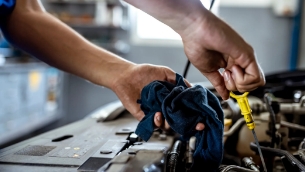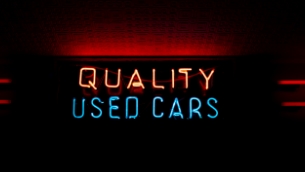Innovative Solutions in the Junk Car Industry

The junk car industry has historically been seen as a repository for old, unusable vehicles. However, recent innovations have transformed this sector into a thriving platform for sustainable practices and technological advancements. In this blog post, we'll take a look into some of the most exciting developments reshaping the junk car landscape. From eco-friendly disposal methods to digital solutions, the future of junk cars is surprisingly bright.
Digital Solutions and Platforms
The digitization of the junk car industry has streamlined operations and improved customer experiences. Platforms now use AI to match car owners with recycling centers, providing a more efficient means of junk car disposal. Additionally, blockchain technology ensures transparency and traceability throughout the recycling process. For those wondering how to sell your junk car, these digital solutions offer a straightforward and accessible way to ensure their vehicles are disposed of responsibly and sustainably.
Community Initiatives and Collaborations
Local communities and organizations play a vital role in promoting responsible junk car disposal. Various initiatives encourage residents to participate in car recycling drives, often providing incentives. Collaborative efforts between municipalities and recycling centers like community recycling drives, incentive programs, and municipal collaborations have proven effective in tackling environmental issues on a larger scale.
Eco-Friendly Disposal Methods
One of the most pressing issues in the junk car industry is environmental sustainability. Traditional disposal methods contribute significantly to pollution, but modern approaches are taking a greener path. Companies are now employing bio-remediation techniques to clean up hazardous substances. Essentially, they use natural organisms like bacteria and fungi to break down harmful materials. In addition to bio-remediation techniques, recycling car parts is a big factor in reducing landfill waste.
New Business Models Emerging
As the junk car industry evolves, new business models are emerging to capitalize on the changing landscape. Subscription services for car recycling are being introduced, allowing customers to pay a monthly fee for regular, scheduled pick-ups of their scrap vehicles. These services aim to make it more convenient for people to dispose of their junk cars responsibly, thereby increasing recycling rates and reducing environmental impact.
Advanced Recycling Technologies
Recycling isn't just about melting down metal parts anymore. Innovations in material recovery allow for a highly efficient re-use of various car components. For instance, advanced shredders and separators are more effective in isolating valuable materials like aluminum, steel, and even rare metals found in catalyst converters. These processes not only reduce waste but also lower the cost of manufacturing new vehicles.
Global Collaboration for Sustainability
The junk car industry is also seeing increased global collaboration aimed at sustainability. International partnerships are being formed to share best practices and technologies, allowing countries to learn from one another and implement the most effective recycling methods. These collaborations are critical for addressing global environmental challenges and ensuring that the junk car industry remains sustainable in the long run.
Upcycling and Creative Reuse
Not all junk cars end up in scrapyards; some find new life through upcycling. Creative individuals and organizations repurpose old car parts into furniture, art, and even new automotive projects. This trend not only diverts waste from landfills but also adds artistic value to discarded materials.
The Future of the Junk Car Industry
Looking ahead, the junk car industry is poised for even more innovation. Promising areas include the development of biodegradable car parts and further advancements in automation for dismantling vehicles. With a focus on sustainability and technology, the industry is set to remain an essential component of the automotive lifecycle.
AI-Driven Predictive Maintenance
Another exciting development is the use of AI-driven predictive maintenance in the recycling process. By analyzing data from various sensors and historical maintenance records, AI algorithms can predict which car parts are most likely to fail and when. This information can be used to optimize the recycling process, ensuring that valuable materials are recovered efficiently and reducing the overall cost of recycling.
Final Thoughts
The junk car industry is undergoing a remarkable transformation thanks to innovative solutions aimed at sustainability and efficiency. From eco-friendly disposal methods to advanced recycling technologies, digital solutions, and community-driven initiatives, the sector is adapting to meet modern challenges. As these trends continue to evolve, the face of the junk car industry will undoubtedly keep changing for the better.










